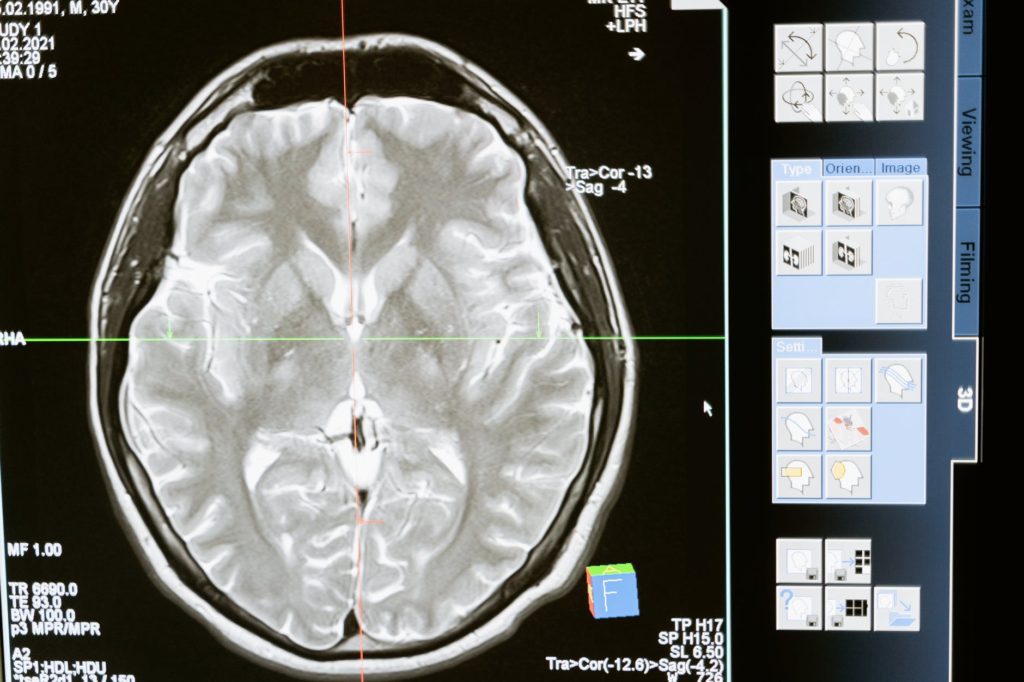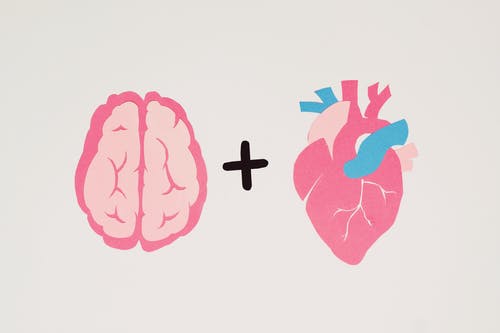“I’m not good enough” I sit and listen to this sentence spoken nonchalantly from the lips of yet another beautiful, intelligent, confused woman living a life that has been far below what she is capable of.
She says it offhandedly, barely giving it time to settle in the air of the room between us before moving on.
So unquestionably true to her it is.
I feel within myself the familiar pang of desire to intervene, to challenge.
I always do. It never seems to get old.
But in this moment, she hasn’t yet realised what she’s said is nothing more than a belief.
Because while to her it is true, the real truth is it’s far from the truth.
I was 27 before I truly learned the real meaning of what a belief was.
I was 27 before I truly felt the power beliefs have over our lives.
I was 27 before I got the chance to deliberately and intentionally change some of my beliefs.
I was 27 before my world began to become anything close to stable and it wasn’t a coincidence that it coincided with learning first that beliefs were a thing, that they were changeable and most importantly directly experiencing how to change them.
A big chunk of that, if not all of it, was made possible through something I didn’t even believe in at the time, hypnosis.
Which is why in this post I want to share 3 reasons I use clinical hypnotherapy to help people recover from eating disorders.
Beginning with the first one which you may have guessed from my introduction…
- Changing Your Beliefs

Our beliefs are what we hold to be true about ourselves, about others, about the world, about “the way it is” and because of this they determine the way it will be.
Beliefs are the gatekeepers of what is possible for us.
Their power really cannot be underestimated.
The tricky thing about beliefs is that we don’t know we have them and if we do, we hold them to be true, so we don’t question them. Which makes it very hard to change something we don’t question because why would we change something we don’t question. After all we don’t even know we have something to change.
Our beliefs are predominantly formed when we are quite young (between the ages of 0-7) which evidently means they aren’t always the beliefs we’d choose for our lives now if we could have our time over….
Our beliefs are formed, operate and continue to function at the unconscious level (without our effort to maintain or enforce them) which means clinical hypnotherapy is incredibly well placed as a tool for changing those that no longer serve us and updating them to more empowering and beneficial beliefs.
Yes, we can do this!
The interesting thing about beliefs is that they’re not as hard to change as they may first appear.
Once you know how.
There is so much more we can do when we learn to work with versus against our minds This is perhaps one of the greatest learnings my years as a clinical hypnotherapist has taught me.
And perhaps also a great example of what a belief is. Many people, my past self-included, hold the belief that they must fight with or against themselves to achieve, to not be lazy, to reach a goal. Whatever that goal may be it is a common belief that we have to be fighting ourselves to do the “right thing”.
Perhaps there is nowhere where this is truer than in eating disorder recovery!
Even though I can’t feel it anymore I remember the daily battle to eat.
I remember the daily battle to show up and be seen.
And guess what? So long as we are at war with ourselves there can be only one loser of that war.
You can see the inner turmoil reflected in the language that people often use to describe eating disorder recovery “warrior”, “battle”, “strong”, “fight”, “brave” and “struggle” to name a few.
The belief that it is a fight, that the eating disorder is a monster and something to be defeated is just that, a belief.
It’s a truth but not the truth.
Wouldn’t it be nice to experience what it’s like to finally welcome that scared part of you that doesn’t know how else to exist in this often-terrifying world other than to starve and run?
Wouldn’t it be nice to help that terrified part of you begin to transform its fear into love?
What do you believe you can or can’t do now?…
What would you need to believe you can and can’t do in order to be the person who lives without an eating disorder?…
Clinical hypnotherapy can help you explore different alternatives of what’s possible (beliefs).
Clinical hypnotherapy can help you build the resources (including beliefs) to do what you could never do before.
Would you be open to the possibility that maybe, just maybe you’ve had it wrong all along?…
2. Increasing Your Self-Esteem

Many people share in consults that they want to feel more confident or that their self-worth or self-esteem are low.
They want to change those things because if they did then they’d stop holding themselves back and stop hiding in the shadows.
Because then they’d be able to do the things they want to do.
Because then they’d be able to be the person, they want to be; the person they know they are inside.
Maybe they’ve read books on confidence, maybe they’ve said affirmations to themselves in the mirror, maybe they’ve done guided meditations, maybe they’ve stood in the bathroom before the job interview with their hands on their hips in a power pose and breathing calmly.
And maybe they’ve done a bunch of other stuff all aimed to directly increase their sense of confidence.
Maybe they’ve been “faking it till they make it” for the past 34 years…
And maybe it’s worked, momentarily but it hasn’t stuck and if it hasn’t stuck that’s an exhausting and confidence crushing existence.
If you feel your self-esteem and confidence are low firstly, I want you to know that most people’s “problems” are not their problems. Most of our “problems”, “inadequacies” and inabilities to cope in this world have come from conditions that made our brain like this, most often when we are children.
If when hearing this, you feel like I did that this information seems a little unfair. That things happen to us and because of those things that happen to us we go on living our lives as though those things that happened to us are 1. true and 2. actually mean something about us.
I want you to know that there are many ways clinical hypnotherapy can help you increase your self-esteem and it’s not through affirmations or trying to convince yourself it’s true or faking it till you make it. It’s through doing the real, deep, necessary core work.
One of the most important and perhaps most transformational means of increasing your self-esteem through hypnosis is through assisting you to align your daily actions with your values.
That is aligning what you do in your everyday day-to-day life with what you know in your heart is important to you.
When people are living with an eating disorder often their day-to-day actions are a little (or a lot) out of alignment with what is actually important and meaningful to them in life.
If you quickly consider the situation of an alien observing your life from the outside, they don’t speak your language, all they do is look on. All they do is see the amount of time and energy you give different aspects of your life.
Would they easily be able to see that your friends, family, kindness, work, learning, growth are important to you, or would they be more likely to draw the conclusion that exercising, being alone, eating as little as possible, lying are the most important things to this human being?…
When we are living a life where what we are doing in our daily actions is inconsistent or directly opposed to what we say is important to us (what we value) we are never going to feel a sense of self-esteem for the simple reason that we are not someone we “hold in esteem”.
And this is fair enough and makes sense that we couldn’t be.
Do you respect or “hold in esteem” the person who recommends to you something you clearly see they are not themselves are not partaking in? How about that person who continues to insist you destress or put yourself first while they themselves run around chronically busy, stressed and putting others needs above their own?
Hypocrisy is the word. Even if their and your intentions are noble and pure, we see through it.
The truth always shines through, and we don’t respect that or hold that in “esteem”.
Conversely, when you are living a life where your daily actions directly and clearly show that what you say is important to you is indeed important to you, you will feel a sense of inner congruency and peace you may never have known.
Clinical hypnotherapy is a direct means of facilitating us to begin to truly live our lives in alignment with our values.
3. Becoming Empowered

In the words of American psychiatrist Milton Erickson who specialised in medical hypnosis “people don’t come to therapy to change their past but to change their future.”
We cannot hope to step forward into a new way of doing things and a new life if we believe our healing or our success is due to someone or something external to us.
Too many of us are living that life.
Too many of us are searching and hoping for an external cure or permission to do or be more than we have been taught to allow ourselves to do or be.
One of the greatest things about clinical hypnotherapy is its empowering nature.
Hypnotherapy is, by definition, one of the most respectful therapies when it comes to truly promoting above all else client autonomy and control.
Traditionally the medical system including mental health treatments have been (and commonly still are) focused on an “expert” performing some form of intervention and/or making recommendations to the patient from a very narrow knowledge of that patient’s life.
In some cases, such as acute care following a broken bone or food poisoning this is all that is necessary but in other cases such as chronic illnesses or psychological problems this model simply doesn’t work.
We know that.
This is not revolutionary information. It’s not a secret, it’s not even controversial. Our medical system as great as it is at acute care was never designed for overcoming chronic illness or advancing mental health and wellbeing.
We’ve been aware of this for a long time, and it is exactly why “alternative” therapies or “holistic” approaches to health are being increasingly sought after.
People recognise the traditional western medical system is not the omnipotent answer we’d so love it to be.
Therefore, we can pay lip service to patient centred treatment all we like but to actually provide professional care with the necessary dose of patient control and empowerment that allows someone to be the number one authority in their life and lead role in their healing is a different story.
It’s tricky.
Clinical hypnotherapy gives us a direct means of providing this.
Great hypnotherapy is always focused on assisting the client to unlock their body’s natural and inherent abilities to heal, grow and learn because we don’t yet know where the limitations of those things lie.
Clinical hypnotherapy puts the client in control of their healing and their recovery and most importantly their life beyond recovery.
Because the part that gets the least attention in eating disorder treatment is the fact that life goes on on the other side of an eating disorder and it is this part that really should get the most attention.
Clinical hypnotherapy provides clients with direct experiences of healing and stepping into a new life before that healing or new life has begun and that is powerful.
That is how we expand our concept of what’s possible.
And expanding our experience of what’s possible is exactly what it means to recover from an eating disorder.
Summary

At the end of the day the eating disorder didn’t come into your life for no reason.
Nor does it continue to have sway (or at times maybe even complete control) over your life for no reason.
Recovery goes far deeper than simply learning to eat again…
If you’ve tried and tried and tried to talk yourself out of an eating disorder, if you’ve ever told yourself, it’s not “that bad” or that you’re managing it better now than you used to please know that this is not the way it has to be.
Your life is worth so very much more than that.
You are worth so very much more than that.
Clinical hypnotherapy can help you move out of your head and move out of your pain and into a compelling future.
Clinical hypnotherapy can help you create and role play a new way of being and you can then see if you want to do it in your real life.
Clinical hypnotherapy gives you the ability to in no uncertain terms change who you are.
I get memories on Facebook, snapchat, Instagram and all those other programs daily from the years I lived with anorexia nervosa, and I am not the same person.
I am the person I chose to become.
I am the person I am still choosing to become.
And that was, I believe, made possible through clinical hypnotherapy because I can see in hindsight that I was so far below the “problem” that I don’t know if there would have been any other way I was getting out of it other than to work directly with my unconscious mind (the part where the problem exists).
This is by no means an exhaustive list of all the ways clinical hypnotherapy can be a great resource during eating disorder recovery. So, if you are interested to find out more about clinical hypnotherapy in eating disorder recovery or after reading this you’re ready to put the learning, knowledge and insight acquisition aside and dive into doing and experiencing something new and different please feel welcome to get in touch with me via email [email protected] or leave a comment below and I will get back to you.
With my whole heart I hope you found this information useful and inspiring.

Become Great. Live Great.
Bonnie.



